The 1955 Ford Thunderbird holds a unique place in automotive history, embodying the innovation and cultural vibrancy of mid-20th-century America. Introduced at the 1954 Detroit Auto Show, the Thunderbird wasn’t just another sports car; it was a bold response to Chevrolet’s Corvette and a game-changer for the American auto industry. With its sleek design, powerful engine, and luxurious features, the Thunderbird set new standards and captured the imagination of car enthusiasts across the country.
This article dives into the history, design, and cultural impact of the 1955 Ford Thunderbird, a car that remains a cherished classic to this day.
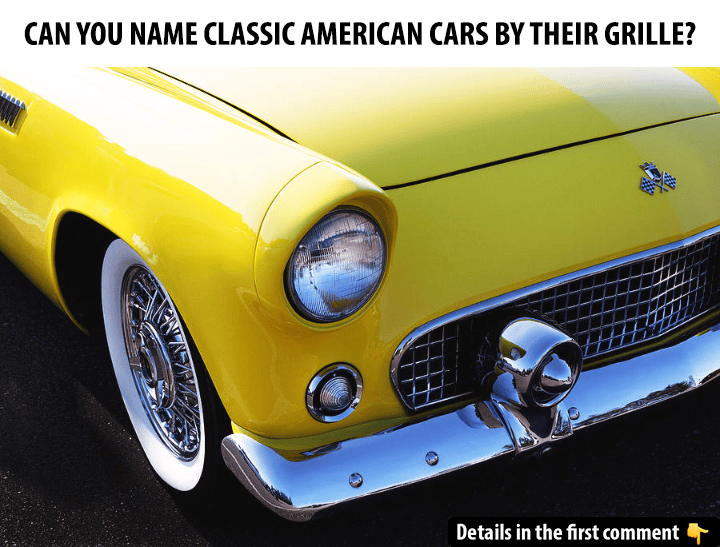
Revolutionizing the American Car Market
Ford’s decision to launch the Thunderbird in 1955 was a turning point for the industry. Until then, the American car market had been dominated by large family sedans and utilitarian vehicles. However, growing consumer interest in stylish, high-performance cars led Ford to create a vehicle that balanced luxury with a sporty edge.
The Thunderbird was marketed as a “personal luxury car,” a concept that appealed to affluent buyers who wanted more than just transportation—they wanted a statement piece. With its accessible price tag, the Thunderbird offered a tantalizing mix of sophistication, performance, and style, making it a runaway success.
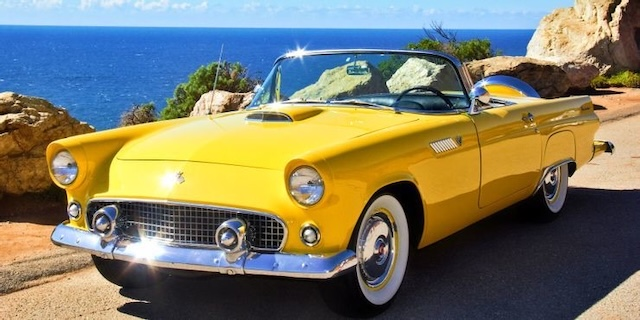
Power Under the Hood: The Thunderbird’s Engine
One of the standout features of the 1955 Ford Thunderbird was its impressive V8 engine, which delivered 193 horsepower. This level of performance was exceptional for its time, giving the car a top speed of 150 mph (241 km/h). Paired with a three-speed manual transmission, the Thunderbird offered smooth handling and exhilarating acceleration, making it a joy to drive.
Ford’s engineers ensured that the Thunderbird wasn’t just a pretty face—it was built for performance. The powerful V8 engine made it a favorite among speed enthusiasts, while its reliable engineering solidified its reputation as a well-rounded sports car.
A Design Ahead of Its Time
The design of the 1955 Thunderbird was nothing short of groundbreaking. Featuring a sleek, low-slung profile and smooth, flowing lines, the car exuded elegance and sophistication. Its front grille, adorned with chrome accents, and the wire-spoked wheels added a touch of class that set it apart from competitors.
One of the most iconic elements of the Thunderbird was its convertible design, allowing drivers to enjoy the open road in style. Inside, the car featured a plush interior with leather seats, a modern dashboard, and stylish trim, creating a luxurious driving experience. Ford also offered a range of color options, allowing buyers to personalize their Thunderbirds to reflect their tastes.
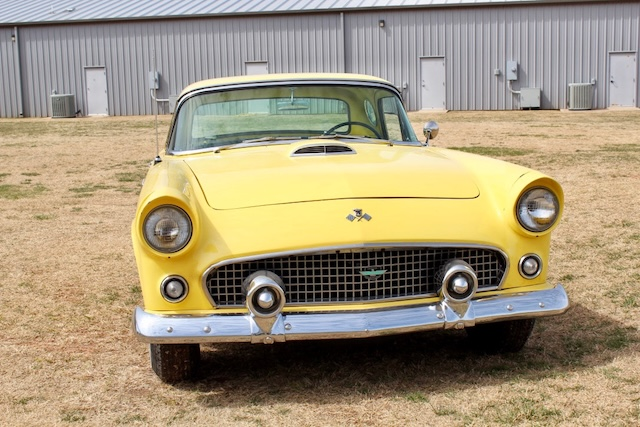
Market Success and Cultural Impact
The Thunderbird’s launch was met with overwhelming enthusiasm, selling 16,155 units in its debut year—a remarkable achievement for a vehicle in the sports car segment. This success highlighted a shift in consumer preferences, with more buyers gravitating toward vehicles that combined luxury and performance.
The Thunderbird wasn’t just a car; it was a cultural phenomenon. It became a symbol of the American Dream, representing success, freedom, and the joy of living life to the fullest. Its appearances in films, television shows, and celebrity garages further cemented its iconic status.

A Lifestyle Vehicle with a Purpose
Ford’s marketing of the Thunderbird as a “lifestyle vehicle” was ahead of its time. The campaigns emphasized the car’s ability to blend sophistication with adventure, appealing to a generation that valued individuality and style. Owning a Thunderbird was more than owning a car—it was a statement of modernity and ambition.
This clever positioning helped the Thunderbird resonate with a wide audience, from performance enthusiasts to those seeking a touch of luxury in their daily lives. Its ability to bridge these two worlds was a significant factor in its enduring popularity.
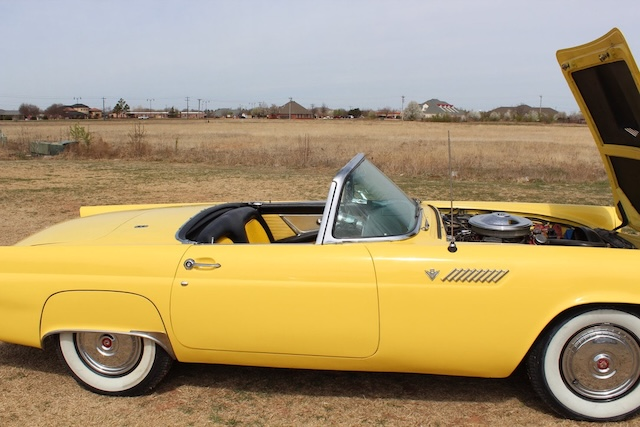
From Garage to Collector’s Treasure
Today, the 1955 Ford Thunderbird is a prized possession among car collectors and enthusiasts. Its timeless design, historical significance, and limited production numbers make it a sought-after classic. Well-maintained examples often fetch high prices at auctions, with collectors appreciating both its aesthetic appeal and its role in shaping the American sports car market.
The Thunderbird’s legacy continues to influence automotive design, serving as a benchmark for blending luxury and performance in a single package.
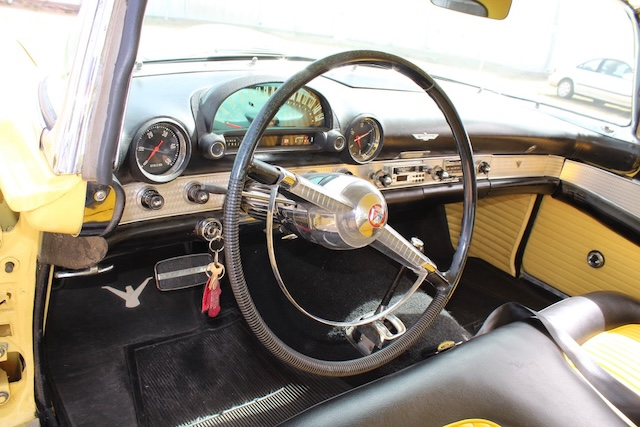
Interesting Stories and Fun Facts
- Celebrity Appeal: The Thunderbird’s sleek design made it a favorite among Hollywood stars and musicians, further boosting its popularity.
- Marketing Genius: Ford’s campaigns positioned the Thunderbird as more than a car—it was a lifestyle accessory, appealing to buyers who wanted to stand out.
- Early Innovation: The Thunderbird’s combination of convertible styling, powerful performance, and luxurious interiors set it apart from its competitors, making it a pioneer in the personal luxury car segment.
Specifications of the 1955 Ford Thunderbird
- Engine: V8 engine with 193 horsepower
- Top Speed: 150 mph (241 km/h)
- Transmission: Three-speed manual transmission
- Body Style: Two-door convertible
- Interior Features: Leather seats, modern dashboard, and luxury trim
- Units Sold: 16,155 in the first production year
These features made the Thunderbird a trailblazer in its time, combining style, comfort, and performance in a way that had never been seen before.
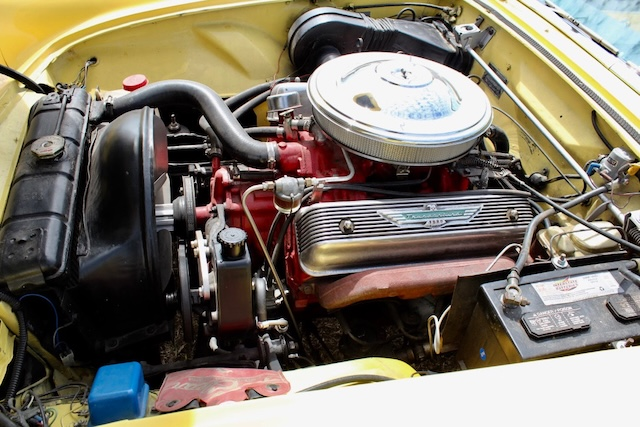
Conclusion
The 1955 Ford Thunderbird wasn’t just a car; it was a revolution in the American automotive industry. By blending luxury, performance, and cutting-edge design, Ford created a vehicle that redefined consumer expectations and set the stage for future sports cars.
Its cultural impact, enduring legacy, and timeless appeal ensure that the Thunderbird remains an icon in the automotive world. For collectors, enthusiasts, and anyone who appreciates the artistry of classic cars, the Thunderbird represents the pinnacle of American design and innovation. Its story is a reminder of the power of vision, creativity, and the relentless pursuit of excellence.